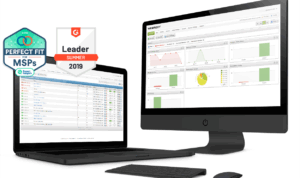Best performance management software is revolutionizing how organizations track and enhance team productivity. Imagine a world where goals align seamlessly, feedback flows effortlessly, and achievements are celebrated in real-time. This software not only streamlines performance evaluations but also fosters a culture of continuous improvement and employee engagement.
In today’s fast-paced business environment, the need for effective performance management tools has never been more critical. These solutions empower managers to set clear expectations, monitor progress, and provide constructive feedback, ensuring that everyone is on the same page. With advancements in technology, teams can now leverage data-driven insights to drive performance and achieve their goals.
In the wake of the global pandemic, the concept of remote work has surged to the forefront of the employment landscape. What was once considered a perk or an exception has now become a standard for many industries. As businesses adapt to a new way of operating, the implications for employees, employers, and the overall workforce are profound.
Understanding Remote Work
Remote work, often referred to as telecommuting or working from home, allows employees to perform their job duties from locations outside of the traditional office environment. This shift is driven by advancements in technology, which facilitate seamless communication and collaboration, making it easier for teams to work together regardless of their physical location.
The transition to remote work has been accelerated by necessity. As companies were forced to close their offices to mitigate the spread of COVID-19, many discovered that their operations could continue smoothly with employees working from home. This experience has led many organizations to reconsider the necessity of maintaining a physical office space.
The Benefits of Remote Work
There are numerous advantages to remote work, both for employees and employers. For employees, the benefits include:

- Flexibility: Remote work often allows for more flexible hours, enabling employees to better balance their professional and personal lives.
- Reduced Commute: Eliminating the daily commute saves time and reduces stress, contributing to a better quality of life.
- Increased Productivity: Many employees report being more productive when working from home, as they can create a work environment that suits their needs.
- Cost Savings: Remote work can lead to savings on transportation, meals, and work attire.
Employers also benefit from remote work in several ways:
- Access to a Broader Talent Pool: Companies can hire talent from anywhere in the world, allowing them to find the best candidates without geographical limitations.
- Reduced Overhead Costs: Maintaining a smaller physical office can significantly reduce expenses related to rent, utilities, and office supplies.
- Improved Employee Retention: Offering remote work options can boost employee satisfaction and loyalty, ultimately leading to higher retention rates.
Challenges of Remote Work
While remote work offers many benefits, it is not without its challenges. Some of the most significant hurdles include:
- Communication Barriers: The lack of face-to-face interaction can lead to misunderstandings and a sense of isolation among team members.
- Work-Life Balance: The blurred lines between home and work can make it difficult for employees to unplug and recharge.
- Technical Issues: Remote work relies heavily on technology, and any disruptions in connectivity can hinder productivity.
Strategies for Successful Remote Work
To maximize the benefits and mitigate the challenges of remote work, both employees and employers can implement several strategies:
For Employees:
- Establish a Routine: Creating a consistent daily routine can help maintain productivity and work-life balance.
- Create a Dedicated Workspace: Having a specific area for work can help mentally separate professional duties from personal activities.
- Stay Connected: Regularly communicating with colleagues and managers can help combat feelings of isolation.
For Employers:
- Implement Clear Communication Tools: Utilizing platforms such as Slack, Zoom, or Microsoft Teams can facilitate effective communication.
- Encourage Regular Check-Ins: Scheduling one-on-one meetings can help managers stay connected with their team members, providing support and guidance as needed.
- Promote a Healthy Work Culture: Encouraging breaks, mental health days, and social interactions can foster a positive remote work environment.
The Future of Remote Work
As we look ahead, it is evident that remote work is here to stay. Many companies are opting for hybrid models that combine remote and in-office work, allowing employees the flexibility to choose where they work best. This blend of traditional and modern work practices reflects the evolving landscape of employment.
Furthermore, as more organizations embrace remote work, there will likely be a greater emphasis on technology and infrastructure to support this shift. Companies will invest in tools that enhance collaboration and communication, ensuring teams can work effectively regardless of location.

Conclusion
The rise of remote work represents a significant transformation in how we approach employment. While there are challenges to navigate, the potential benefits for employees and employers are considerable. By embracing remote work and implementing effective strategies, we can adapt to this new reality and create a more flexible, productive, and satisfying work environment for all.
General Inquiries
What features should I look for in performance management software?
Look for features like goal setting, real-time feedback, performance analytics, and integration capabilities with other tools.
How can performance management software benefit remote teams?
It helps remote teams stay aligned on goals, facilitates communication, and allows for regular feedback regardless of location.
Is performance management software suitable for small businesses?
Yes, many performance management solutions are designed to scale with businesses of all sizes, making them ideal for small businesses.

Can performance management software improve employee retention?
Yes, by fostering a culture of feedback and recognition, it can enhance employee satisfaction and loyalty, leading to better retention rates.
How often should performance reviews be conducted using this software?
Regular check-ins and quarterly reviews are often recommended, but it varies based on organizational needs and team dynamics.






































